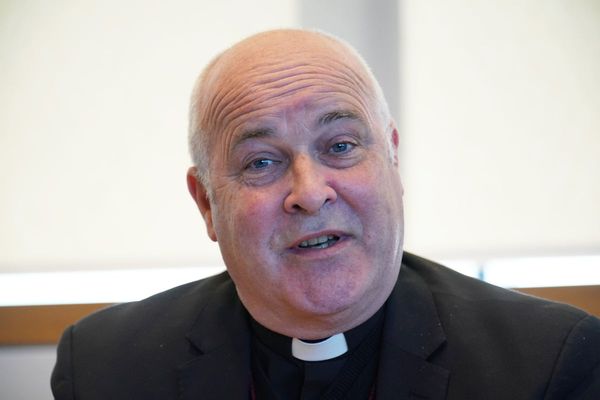In the Torres Strait, it can sometimes take hours, even days, for police to arrive after a crime's been reported. And often, by the time officers step foot on the island, the situation has been resolved.
Research shows islands in the Torres Strait, which stretch for 150-kilometres from the northern-most tip of Queensland to the coast of Papua New Guinea, have lower property crime rates than many non-Indigenous communities.
A recent Australian Institute of Criminology report debunks the generalisation that all Indigenous communities are riddled with crime.
John Scott, one of the report's authors, says the Torres Strait region's crime figures are similar to those of "a relatively well-off white agricultural community on the mainland".
"And it's beset by the same sorts of crime problems as we'd expect to find in that type of setting," Professor Scott tells ABC RN's Law Report.
According to the report, between 2001 and 2018, crimes against a person such as assault were lower in the Torres Strait region than in Queensland Aboriginal communities, but higher than for the whole of the state, while property offences were slightly lower than the Queensland average.
Professor Scott says while the region is economically disadvantaged, like many country communities, it has high levels of "social capital" that may be keeping crime down. This includes cultural mediation, community involvement and support as well as long-practiced traditions.
"We argue that in explaining these rates of crime, you've really got to understand the high levels of social capital that exists in the Torres Strait," Professor Scott says.
"Social capital is something that's not really identified with Indigenous communities in this country, which ... is a real error."
'We're not all the same'
Queensland Magistrate James Morton, who is a Torres Strait Islander, says it's important that Indigenous communities across Australia are not grouped together.
Factors like location, community and culture all have an influence on crime rates, he explains.
Magistrate Morton, who co-authored the Australian Institute of Criminology report, says family and long-standing traditions continue to be a large part of island life providing structure and a community harmony.
But belonging to a smaller communities can be a "double-edged sword", he says.
Shame, embarrassment and family dynamics appear to keep overall crime rates low, while people are less likely to report domestic violence.
What justice looks like in the Torres Strait
C'Zarke Maza, the Torres Strait regional manager of the Queensland Aboriginal and Torres Strait Islander legal service, says communities often deal with their "own issues" before matters are retro-fitted into the mainstream legal system.
Each island has its own community justice group made up of elders who apply protocols and customs when dealing with a crime.
They never deal with allegations of domestic violence.
The justice groups were set up in Queensland as a response to the Royal Commission into Aboriginal Deaths in Custody.
They provide cultural information reports at sentencing and during bail hearings, as well as contribute to unique forms of local justice like cultural mediation.
Mr Maza, a descendant of the Meriam people of Murray Island and Yidinji people near Cairns, says each group operates differently.
He says while cultural mediation exists in other areas of Australia, the practice has been adapted for the Torres Strait way of life.
"It's where the elders get together with the offender, with the victim, and pretty much they mediate using traditional island practices that have existed from time immemorial," Mr Maza, who is based on Thursday Island, says.
Charges for low-level offending, like wilful damage or low-grade assault, are struck out of court and dismissed after successful mediation.
Mr Maza says the process has seen a reduction in repeat offenders.
"Normally they [the complainant] are put on the sidelines and the police end up taking over but this way they have a say and their voice is heard through the process.
"This empowers the justice group elders because really it's recognising the position and the power that they play in the communities."
An island home where culture is strong
Professor Scott, the head of Queensland University of Technology's School of Justice, believes the region's colonial experience, geography and history of community policing continues to shape it.
He says colonisation was "less impactful" in the Strait compared to other parts of Australia where people were displaced by the pastoral industry.
"A lot of people still speak English as a second language. The culture is still relatively intact," he says.
Other contributing factors, he says, are the remoteness of some islands and literally having nowhere to run if you commit a crime.
RN in your inbox
Get more stories that go beyond the news cycle with our weekly newsletter.







